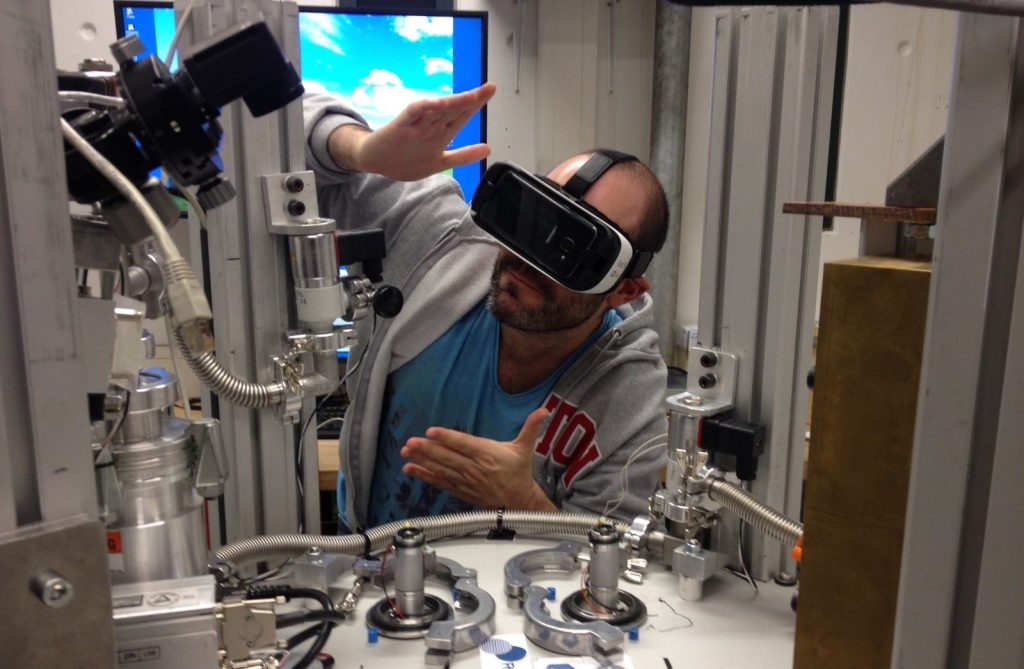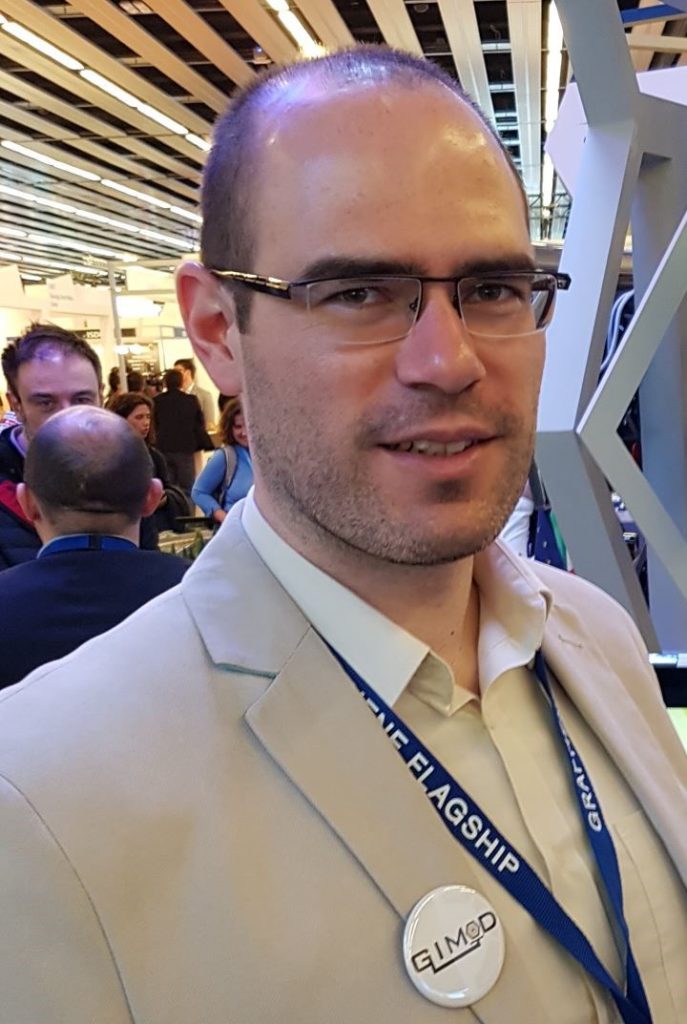this scientist´s space ambitions are powered by light and e-Residency
German-based e-resident Santiago Cartamil-Bueno found the perfect home for his deep-tech digital startup SCALE Nanotech OÜ in Estonia

After months of frustration of trying to set up a company in Germany, Santiago Cartamil-Bueno was on his honeymoon in Montenegro in August 2018 when he finally pulled up the Estonian e-Residency application on his smartphone and filled it out.
“That’s how you know it didn’t take very long, or my wife wouldn’t have let me,” he says, laughing. “It was so fast you can almost forget you did it.”
But Dr. Cartamil-Bueno, PhD is hoping his Estonian company, called SCALE Nanotech OÜ, will leave a more lasting impression.

Cartamil-Bueno – who grew up in Spain and studied in the U.S., Denmark, Switzerland and The Netherlands – founded the company to develop a new (and eco-friendly) technology that can be used for virtual and augmented reality, as well as potentially for space travel.
“We want to set sail to Mars before Space X,” he jokes.
SCALE Nanotech grew out of a discovery Cartamil-Bueno made while working on his Ph.D. in applied physics at the University of Delft in the Netherlands. He was experimenting with graphene, an incredibly strong material that’s also one of the thinnest known to man (it’s one atom thick.) Graphene is used in things like microphones and to keep smartphones small. Cartamil-Bueno was working on a pressure sensor when he realized that when he applied voltage to freestanding graphene suspended in silicon, the graphene physically moves and also changes color. This allows the graphene to act as a pixel – except one better suited for the faster speed required for virtual and augmented reality than what’s currently available. Why? Because graphene can produce the full spectrum of colors, so you don’t need sub-pixels.
“The refresh rates are higher,” says Cartamil-Bueno of his discovery. And these pixels consume less power (they actually consume none during the day) and can be made without toxic materials (very different than current commercial displays.)
But how does space travel fit into this?
Ultra-thin graphene sails – powered by light, instead of wind -- could speed the journey to other star systems, and make it more affordable. Because the sails don’t require fuel to move (only lasers), they’d save on the (costly) weight of fuel and tanks.
Cartamil-Bueno knew setting up his company in the US would be great for funding but not so great for healthcare. He considered several places in Europe before settling on Cologne, Germany, in part because his then-fiancee, now-wife is German, and also because he hoped he’d be able to get some help from a research institute nearby. But he spent months unable to make much progress, and the hoped-for boost from the institute didn’t pan out.
“Every day there was this bureaucracy to deal with, and I couldn’t even get the company started,” he says. “It made me feel like I was in this hostile country, just constantly fighting.”
He can’t remember where he first heard about Estonia’s e-Residency, only that it was exactly what he wanted:
“Digital, English, smooth, fast, painless. It was, ‘Let’s just do it.”
He filled out the application and a month later he started SCALE Nanotech just as he was picking up his e-Residency card in Brussels. (“Scale” doesn’t refer to scaling up a business; instead it refers to scales, like those of a scale-armored knight, that protect an idea or a business. While working on his PhD thesis, Cartamil-Bueno compared the Middle Ages to academia.)
After so many months of nothing happening with the company, suddenly everything started falling into place quickly for SCALE Nanotech. Just after Cartamil-Bueno incorporated his company, he applied to the European Commission for funding and immediately received 100,000 euro, which funded SCALE Nanotech’s first project – working on the graphene displays.
“It was brilliantly unexpected,” he says. “I went from total despair of, ‘why did I do this? Why did I move to Germany?’ to actually everything starting to work.”
The funding – and the free time he suddenly had when he no longer had to fight to get things done -- also allowed him a bit of breathing room to learn about running a business, something he didn’t have much experience with as an academic.
Read more about the technologies and services Cartamil-Bueno offers on the SCALE Nanotech website:

Currently, Scale Nanotech has a Dutch client interested in the possibilities of its technology, and Cartamil-Bueno is talking to another in the US. In the future, he hopes to collaborate with other e-Residency deep-tech startups. He also hopes the European Commission may cooperate with e-Residency sometime soon, perhaps giving additional benefits to e-Residency startups for their digital ambition and social impact.
“Being digital is not a fashion, but a need to make a sustainable world, (e.g., reducing the carbon footprint of paper and transport) and hence a state of mind and responsibility,” he says.
Also in Cartamil-Bueno’s future: an in-person visit to Estonia, which he had planned to do in summer 2020. (That, of course, was scuppered by the pandemic.)
“E-Residency means Estonia is often in my head, despite the distance. “It’s on the upper list of places I want to go with my family once we are vaccinated.”
Learn more about how starting a company in Estonia with e-Residency could help your ambitions in science and technology become a reality:
More from e-Residency
- Sign up for our newsletter
- Watch fresh video content - subscribe to our Youtube channel
- Meet our team and e-residents - register for our next Live Q&A
